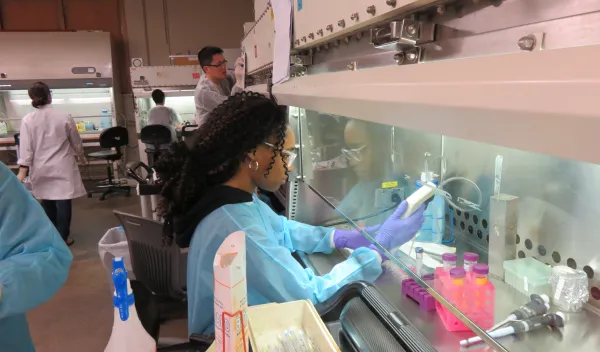
NSF and NIH partner on internship opportunity in biomedical engineering
The U.S. National Science Foundation and the National Institutes of Health's National Institute of Biomedical Imaging and Bioengineering (NIBIB) have initiated a joint research training opportunity through the NSF Non-Academic Research Internships for Graduate Students (NSF INTERN) program.
The NSF INTERN program provides graduate students with six-month experiential learning opportunities through research internships where they acquire core professional competencies and skills. Through this collaboration, the internships will take place at the NIBIB Center for Biomedical Engineering Technology Acceleration (BETA Center).
The NSF-NIBIB collaboration will help advance NSF’s strategic workforce development objectives as well the NIBIB’s mission to transform, through technology development, our understanding of disease and its prevention, detection, diagnosis, and treatment and support the next generation of diverse, interdisciplinary researchers across the career continuum.
″Over 60% of STEM Ph.D. recipients start their careers in industry, government or nonprofit positions," said Susan Margulies, NSF assistant director for Engineering. ″This partnership between NSF and NIBIB will help equip graduate students in science and engineering with the skills to impact the future development of biotechnology in the U.S.″
"We're thrilled to collaborate with NSF on expanding training opportunities for engineers and physical scientists in biomedical research," said Bruce Tromberg, director of NIBIB. "The BETA Center will match trainees with experts in NIH's unique clinical and laboratory facilities, forming collaborations that accelerate bioengineering innovation and technology development, an urgent national need".
The opportunity will support research experiences at the BETA Center in areas of biomedical research. The opportunity seeks to fund approximately eight to 10 internships in Fiscal Year 2024, providing up to $55,000 per student for a six-month period.
This activity is arranged under a five-year memorandum of understanding (MOU) established between NSF and NIBIB in 2022. The MOU enables new and stronger collaborations between research and research communities supported by NSF and NIBIB to accelerate discovery and innovation in biotechnology.
